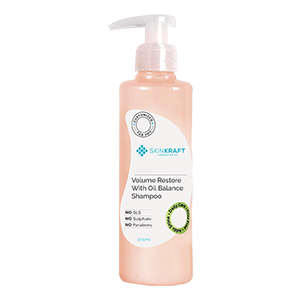Has your child been scratching his/her head way too much lately? If yes, you should probably check for tiny brown creatures on their scalp and hair - head lice.
Don't freak out! It is not a disease and it does not imply that your child is dirty or unhygienic. Head lice bother a lot of people including adults at some point or other in their lives. Here's how you can deal with them and drive them away. Keep scrolling.
Highlights:
What Are Head Lice?
Lice are small (2-3 mm long) [1] and wingless parasites. A parasite [2] is an organism that lives on/in another organism (host) to derive nutrition from the host. One louse is of the size of a sesame seed. They live on the human head and suck the blood from your scalp.
The different phases in the life cycle of head louse [3] are:
- egg
- nymph
- Adult

There are 3 kinds of human lice: head louse (Pediculus humanus capitis) [4], the body louse (Pediculus humanus corporis) and the crab louse (Pthirus pubis).
Causes Of Lice
Lice are contagious and caused due to head-to-head transmission. Your scalp can be infested with lice if your head comes in close contact with an already lice-infested head.
You can also transmit head lice if you share personal items like combs, brushes [5], headphones, towels, hats, bedding, furniture and so on. However, this kind of transmission via inanimate objects is rare. Head-to-head transmission is the most common cause.
Symptoms Of Head Lice
- Scalp itchiness.
- Feeling that something is crawling on the scalp. [6]
- Sores on the scalp due to scratching.
How Are Head Lice Diagnosed?
- Closely examining the hair.
- Running a fine-tooth comb through the hair to catch hold of lice and nits (white eggs of lice that look like dandruff flakes).
Treatment Of Head Lice
1. OTC Medications
A. Pyrethrin
[7] - This is a common OTC (over-the-counter) medication for head lice. It is a pesticide derived from chrysanthemum flowers and can be used in people above 2 years. Permethrin (Nix) is a synthetic form of pyrethrin.
B. Dimethicone
This OTC medication is a non-pesticide that coats the lice and disrupts their ability to manage water. This medication is more efficient than pesticides.
2. Prescription Medications
A. Benzyl alcohol lotion
It is a prescription strength medication that can be used in people above 6 years of age.
B. Malathion (Ovide)
This is another pesticide that can be used in people over the age of 6. However this is not recommended for pregnant and breastfeeding women.
C. Lindane
This pesticide can be used as a last resort as it can cause serious implications like seizures and death. It is available in the form of lotions and shampoos.
3. Natural Methods
A. Oils and combing
Use a fine-toothed lice comb to comb out the lice and nits from your head. Apply olive oil or coconut oil to make combing easier. This has to be done every 2 or 3 days until you see no signs of lice.
B. Killing with mayonnaise
Mayonnaise is known to kill head lice. Massage mayonnaise onto your hair, cover it with a shower cap and leave it overnight. Wash the next morning and comb with a fine-toothed comb to remove lice and dead eggs. Repeat after a week if needed.
C. Numbing with conditioner
Wet your hair and apply conditioner [8] to the hair. Detangle your hair with a wide-toothed comb and separate out sections of hair. Using a fine-toothed comb, remove all the lice from your hair. The conditioner does not kill the lice but stuns them for about 20 minutes.
D. Vinegar treatment
Rinsing the hair with vinegar diluted in water is effective against lice. Vinegar enables in dissolving the glue that holds the nits to the hair shafts. Using a fine-toothed comb, comb out the nits from your hair.
Home Hygiene To Prevent Further Infestation
1. Wash your bedding and towels with hot water.
2. Disinfect the floor and vacuum the furniture.
3. Soak combs and hairbrushes in hot water.
Words of Caution
- Don't use any medication in high doses.
- Don't use more than one medication.
- In case you are using anti-lice shampoos, make sure you wash your hair in a sink to avoid exposing your body to the drug in the shampoo.
Tips To Prevent Head Lice
- Don't share items that come in direct contact with the head like combs, brushes, hair accessories, hats, helmets, scarves, headsets and towels.
- Avoid head-to-head contact. This is especially important in school children as they may get it with head-to-head contact during playing.
- Keep your belongings separate. Make sure your children keep their belongings like clothes, hats or combs in separate drawers or closets in their school or playschool.
When To See A Doctor?
Lice do not cause any serious health problems. If you think that you or your child has lice and there is increased itchiness, redness, scaling or small bumps on the scalp, it is time to see a doctor. He may prescribe anti-lice shampoos or medications.
Who Is At Risk Of Getting Head Lice?
Children at play are most likely to get head lice. People who work with children like playschool teachers, school teachers, daycare centre staff have an increased risk of getting head lice.
Do Head Lice Go Away On Their Own?
Head lice can sometimes go away on their own if they do not have enough partners for infestation. Without proper treatment, they can remain in your head for many days or months or years. With proper treatment, it is easy to get rid of head lice in just about two weeks.
Can Head Lice Live On Pillows?
An infested individual can spread the head lice through direct contact of the head with items like pillows. Since head lice do not jump or fly, they generally can't survive for more than 24 hours. They need a host to survive and derive their nutrition.
Wrapping up
The biggest source of head lice is head-to-head contact. Even though cleaning things is being emphasized, lice are parasites that typically live on your head to feed on the blood. If you or your child are suspecting head lice, your greatest weapon is a good lice comb and medicated shampoos. Get your hands on those creepy little creatures and kill them. If they are being stubborn, talk to your doctor about the possible medications that you can take.
1. https://www.cdc.gov/parasites/lice/head/index.html
2. https://www.cdc.gov/parasites/index.html
3. https://www.ncbi.nlm.nih.gov/books/NBK279329/
4. https://www.ncbi.nlm.nih.gov/pubmed/19104739
6. https://www.ncbi.nlm.nih.gov/pmc/articles/PMC1070891/
Recommended Products
Was this Article helpful?
- Least helpful
- Most helpful





